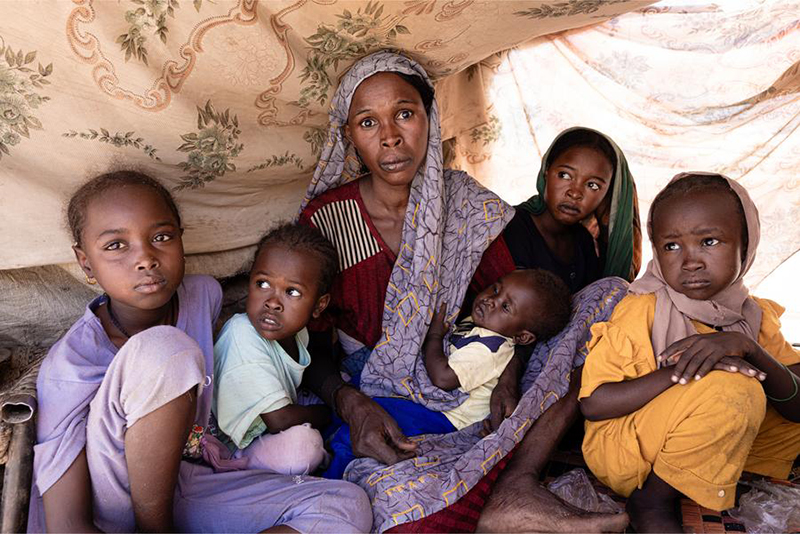
A displaced woman and some children sit under a tent built from logs and cloth in Tawila, North Darfur, Sudan, Aug 8, 2025. [The UN World Food Programme/Handout via Xinhua]
UNITED NATIONS - Relief organizations in Sudan's North Darfur are increasing support for the growing number of people displaced from the state capital of El Fasher, UN humanitarians said on Thursday.
The UN Office for the Coordination of Humanitarian Affairs (OCHA) called it a dire humanitarian situation for the thousands of families displaced since the Oct 26 takeover of the city.
OCHA said that most of the displaced escaping the violence headed about 40 km west to Tawila and surrounding areas, only to find extremely harsh conditions lacking food, clean water, shelter and medical care.
The office added that in the Al Omda displacement camp in the Tawila area alone, more than 3,000 recent arrivals are in urgent need of basic items and shelter assistance, including plastic sheeting, mats and blankets as temperatures drop. Many, including the injured, people with disabilities, and unaccompanied children, are sleeping in the open without protection or sanitation facilities.
Similar conditions were reported in the camps of Daba Al Naira and Um Jangour, where more than 6,500 people lack shelter and essential supplies.
The office also said its partners report that hundreds of displaced families who fled the El Fasher region on foot have reached the locality of Northern State's Al Dabba, after days of walking through harsh conditions. Some 2,800 people are sheltering in overcrowded sites with little access to food, water or medical assistance, and many lost family members during their journey to the town on the banks of the Nile River.
OCHA said that with more families expected to arrive in the coming days, urgent assistance is needed, including food, medical care, psychosocial support, shelter and warm clothing. The United Nations and its partners are mobilizing additional emergency supplies for the area, but available stocks are limited.
The office noted that urgent additional support is needed to meet rising humanitarian needs in the Darfur and Kordofan regions. This year's Sudan humanitarian response plan is only 28 percent funded, it said.





